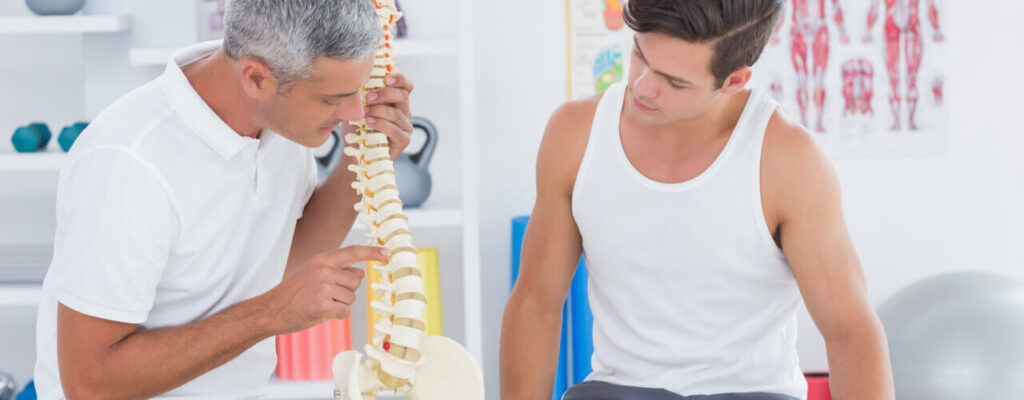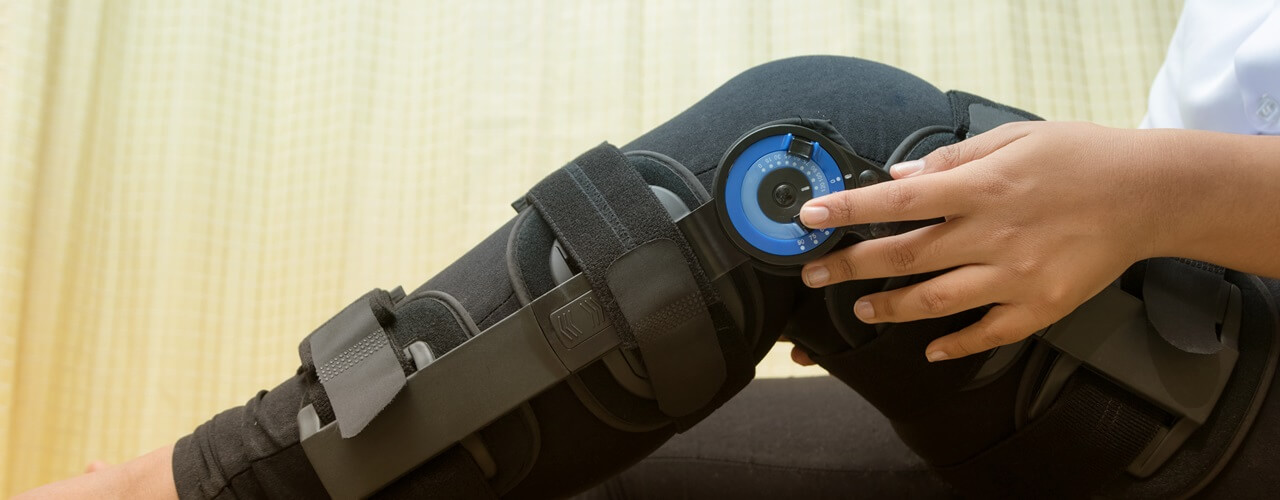Do you feel as if something within your body is terribly wrong, but you don’t know what it is? Strange neck, back, or extremity pains can indicate a variety of problems, including one or more herniated discs.
How can you tell if you have this particular problem? And what can you do if you do have a herniated disc? These questions don’t have to add to your confusion and frustration.
Here are some tips from our physical therapist about herniated discs, common symptoms, and how physical therapy can help you overcome your discomfort. To learn more about your treatment options, contact SportsPlus Physical Therapy & Chiropractic in Greenwich, CT.
So, what exactly are herniated discs?
The terms “herniated disc,” “slipped disc,” and “ruptured disc” all refer to the same physical problem. The spinal discs are squat discs of tissue that are located between the vertebrae.
A disc is made up of a fluid-filled center called the nucleus pulposus that is surrounded by a fibrous outer structure called the annulus fibrosus. This configuration makes the disc both tough and pliable enough to absorb shocks.
Unfortunately, that toughness has limits. Over time, a disc may lose hydration, causing the nucleus pulposus to shrink. The disc loses height, putting strain on the spinal joints and potentially causing the disc to bulge outward.
These changes can eventually cause a portion of the annulus fibrosus to balloon and tear open, resulting in a herniated disc. Herniated discs can also occur suddenly as a result of a car accident, workplace accident, or sports injury to the spine.
What are the symptoms of a herniated disc?
Herniated discs do not always cause symptoms, but the ones that do can help you determine the nature of your problem. The following are the most common symptoms:
- Symptoms that began after you gained a lot of weight (since obesity is a risk factor for disc problems)
- Symptoms that started shortly after an accident, extreme twisting of the neck or back, or an attempt to lift a heavy object
- An inability to walk more than a few steps without pain
- Pain, tingling, or loss of sensation in a limb (the result of a herniated disc pressing against nerve roots)
- Back pain that seems to grow worse when you sneeze, cough, stand up, or sit down
- Neck pain (if it’s a cervical disc)
If massage, heat, or cold seem to relieve your symptoms, you may have a strained muscle or tendon rather than a herniated disc.
Finally, medical imaging is the most accurate way to confirm a herniated disc. X-rays can show not only the abnormal shape of a herniated disc, but also whether it is pinching a nerve.
Herniated discs and PT
A herniated disc can be extremely painful, but don’t panic. The majority of herniated discs can be successfully treated without surgery. Physical therapy can assist you in reducing or eliminating your symptoms.
Our physical therapist can advise you on specific exercises to strengthen your back and neck. These exercises can help to compensate for any atrophy or weakness caused by your herniated disc. They can also strengthen your neck and back, providing extra support and making these structures less vulnerable to future herniation.
We may also suggest non-invasive techniques to supplement your physical therapy exercises and aid in your healing.
What is the treatment for herniated discs?
Physical therapy can effectively treat herniated discs. During your initial appointment, one of our physical therapists will perform diagnostic tests to determine the source of your pain and confirm that it is indeed caused by a herniated disc.
Once the source of your pain has been identified, an individualized treatment plan based on your specific needs will be developed for you. This usually consists of a series of stretches and exercises aimed at relieving pain, improving function, and promoting your body’s natural healing process. Additional treatments may be recommended by your physical therapist. These are some examples:
- Manual therapy
- Ice and heat therapies
- Traction
- Class IV laser therapy
- Transcutaneous electrical nerve stimulation (TENS)
- Education on posture and lifting mechanics
Your physical therapist will also advise you on any lifestyle changes that may be recommended to prevent herniated discs from recurring. Physical therapy is one of the most effective and safest ways to treat herniated discs. It is a non-invasive, holistic approach that, in many cases, has eliminated the need for harmful drugs or surgical intervention.
Please contact SportsPlus Physical Therapy & Chiropractic right away
Are you ready to learn more about herniated discs and get the answers you require for your neck or back? Make an appointment at our Greenwich, CT clinic today!
Sources:
- https://www.spineuniverse.com/conditions/herniated-disc/physical-therapy-herniated-discs
- https://www.mayoclinic.org/diseases-conditions/herniated-disk/diagnosis-treatment/drc-20354101
- https://www.healthline.com/health/herniated-disk#causes
- https://www.webmd.com/pain-management/do-i-have-a-herniated-disk#1
- https://www.choosept.com/symptomsconditionsdetail.aspx?cid=79ef56df-780e-4ad0-963f-94364404125a
- https://www.choosept.com/symptomsconditionsdetail/physical-therapy-guide-to-herniated-disk
Tags: Physical Therapist, Back Pain Relief, back pain, herniated disc, PT, physical therapy clinic, herniated disc pain, herniated disc pain relief, Physical Therapy



